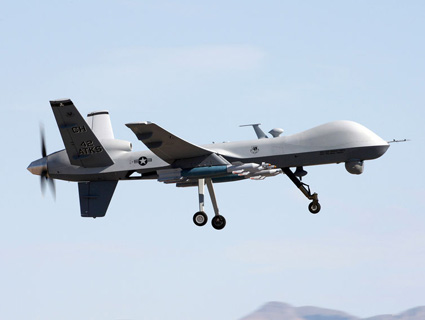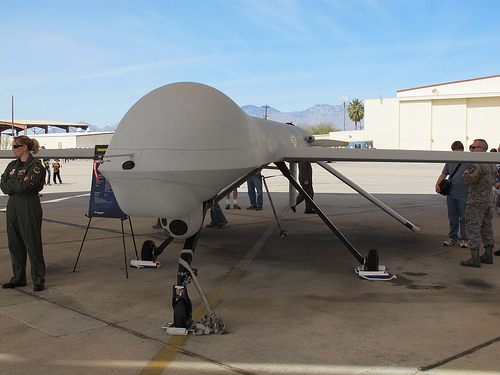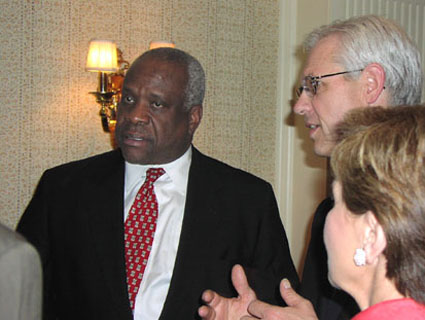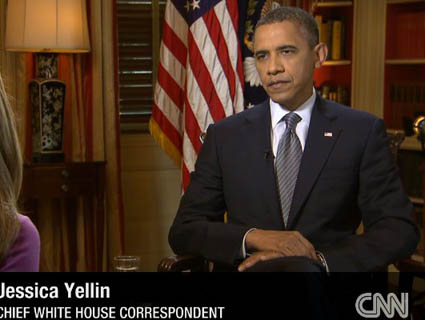Last weekend the New York Times reported on a promising development: the Obama administration is working to develop “explicit rules for the targeted killing of terrorists by unmanned drones.” Needless to say, explicit rules can also be bad rules, so this is no guarantee of progress. Still, there’s some value in publicly agreeing that drone strikes shouldn’t literally be approved solely at the whim of the president.
Unfortunately, there was a catch: the administration’s newfound dedication to rules was prompted primarily by the possibility that they might lose the election:
“There was concern that the levers might no longer be in our hands,” said one official, speaking on condition of anonymity. With a continuing debate about the proper limits of drone strikes, Mr. Obama did not want to leave an “amorphous” program to his successor, the official said. The effort, which would have been rushed to completion by January had Mr. Romney won, will now be finished at a more leisurely pace, the official said.
But it was never Mitt Romney that we needed to worry about. Last month the Washington Post wrote about the Orwellian-sounding “disposition matrix,” a rapidly growing database of targets for a 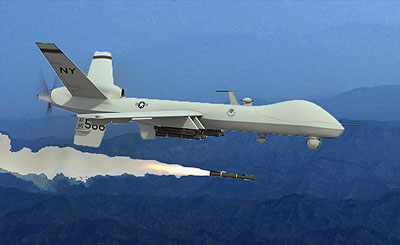 drone fleet operated almost entirely in the shadows:
drone fleet operated almost entirely in the shadows:
Although the matrix is a work in progress, the effort to create it reflects a reality setting in among the nation’s counterterrorism ranks: The United States’ conventional wars are winding down, but the government expects to continue adding names to kill or capture lists for years….That timeline suggests that the United States has reached only the midpoint of what was once known as the global war on terrorism. Targeting lists that were regarded as finite emergency measures after the attacks of Sept. 11, 2001, are now fixtures of the national security apparatus. The rosters expand and contract with the pace of drone strikes but never go to zero.
And if you think that at least we’re lucky that Barack Obama can be trusted with this kind of power, think again. As Micah Zenko wrote about the Post’s revelations:
Having spoken with dozens of officials across both administrations, I am convinced that those serving under President Bush were actually much more conscious and thoughtful about the long-term implications of targeted killings than those serving under Obama….Recently, I spoke to a military official with extensive and wide-ranging experience in the special operations world, and who has had direct exposure to the targeted killing program. To emphasize how easy targeted killings by special operations forces or drones has become, this official flicked his hand back over and over, stating: “It really is like swatting flies. We can do it forever easily and you feel nothing. But how often do you really think about killing a fly?”
The truth is that it shouldn’t be the president making these rules in the first place. It should be Congress. And outside of war zones, there ought to be serious judicial review as well. Nobody should have the unchecked, unilateral power to kill anyone, anytime, anywhere in the world. And the lesson of history about this is pretty plain: this is a more important principle for people you trust than for people you don’t.
Congress has ducked its responsibilities here for far too long. President Obama, like any president, should be required to follow rules that Congress has set and that the president can’t change with the stroke of a pen. This is something, at long last, that you’d think Republicans would actually agree with.


